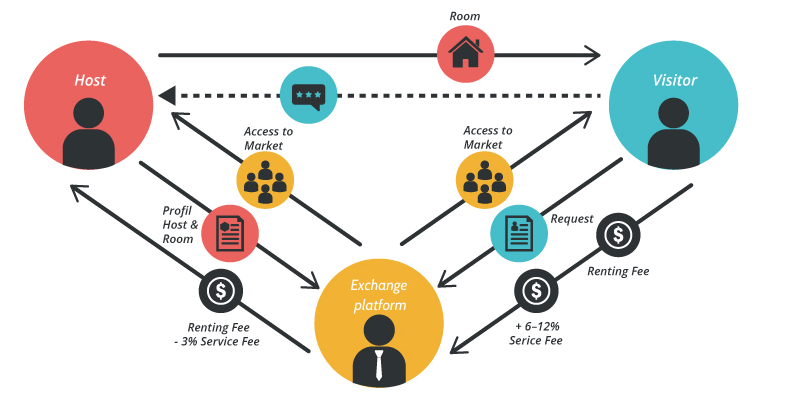There is no denying that the influence of blockchain on every economic sector is huge and most prominent is the real estate rental management industry. Blockchain has dramatically changed business models and brought many benefits.
1. What is Rental Management Model?
1.1 Rental Management
Rental management (Rental Pool) is defined as the act of a real estate owner (home, villa, land in general…) authorizing a unit to operate as the exclusive representative (agent) for leasing, marketing, and use by the owner for a set length of time. The main goal is to make as much money as possible from real estate that they don’t need.

The owner is the person who, in the long run, owns the entire property and receives rental income from the leasing agent. At the same time, the entrusted management unit has full access to the property throughout the contract period (trust agreement) and collects a management fee from the Property Owner.
Rental management (Rental Pool) has become a primary activity of real estate development organizations worldwide. It is becoming increasingly perfected to deliver maximum benefits to clients through real estate developers’ professionalism—the world’s largest real estate company.
1.2 Types of Rental Management Arrangements
Rental management arrangements for personal property can create passive revenue, perhaps less widely known. For example, interested parties may be able to join a rental management that gives them access to products such as computers, music, and video equipment that would otherwise be prohibitively expensive for them. Rental management could also be used to make certain types of machinery available.
These agreements may also apply to natural resources, such as water. Individuals or groups in specific places might use a rental management agreement to get contracted access to water stored in wells or reservoirs. Priority access is typical in such situations. The agreements will spell out who has first and second priority, as well as any and all other terms and conditions.
2. Blockchain application in the Rental Management Model
2.1 Efficient asset management
The global portfolios of large property management companies are overseen inefficiently. Blockchain enables safe data exchange, accelerates rental collections and payments to property owners, and enhances portfolio due diligence. This improves operational efficiency while saving time and money. It also produces a lot more data, which makes it easier to make better decisions.

2.2 Payment just got easier
Leases can be signed and paid on-chain, thanks to distributed ledger technology. This eliminates the need for manual reconciliations and automates payments to property owners for rent and dividends. Smart contracts can also automate other forms of payments and fees to reward tenants, landlords, and service providers for good behavior.
2.3 Renting houses, apartments, .. across borders
Blockchain technology can promote future rentals of houses and apartments, such as renting a new property with cryptocurrency. They led to the birth of online rental platforms in cryptocurrencies where there were no exchange rate fluctuations or limitations on international transfers. In fact, many start-ups have also considered this as a channel to do business and raise capital effectively.

2.4 Intermediaries should be eliminated
Brokerage firms, lawyers, and banks served as intermediates in the rental property ecosystem in the past. However, in real estate, blockchain may someday eliminate the need for middlemen entirely. New blockchain systems manage payment methods and legal papers. The implementation of blockchain in real estate allows buyers and sellers to save a significant amount of commissions and costs by removing middlemen.
2.5 Transparency and decentralization of information
Blockchain is well known for its trust and security in a decentralized system. All data is stored in a chain that is accessible to all members of the platform. This type of process creates transparency and immutability of information. Sellers and buyers are assured to conduct real estate rental transactions because the information is verifiable with all partners on the network.

In brief, the adoption of Blockchain has the potential to transform the payment of rental properties. A shared database allows all stakeholders, including owners, tenants, and service providers, to engage openly and securely with ownership information or transaction history, resulting in cost-effectiveness and smarter rental decisions.
